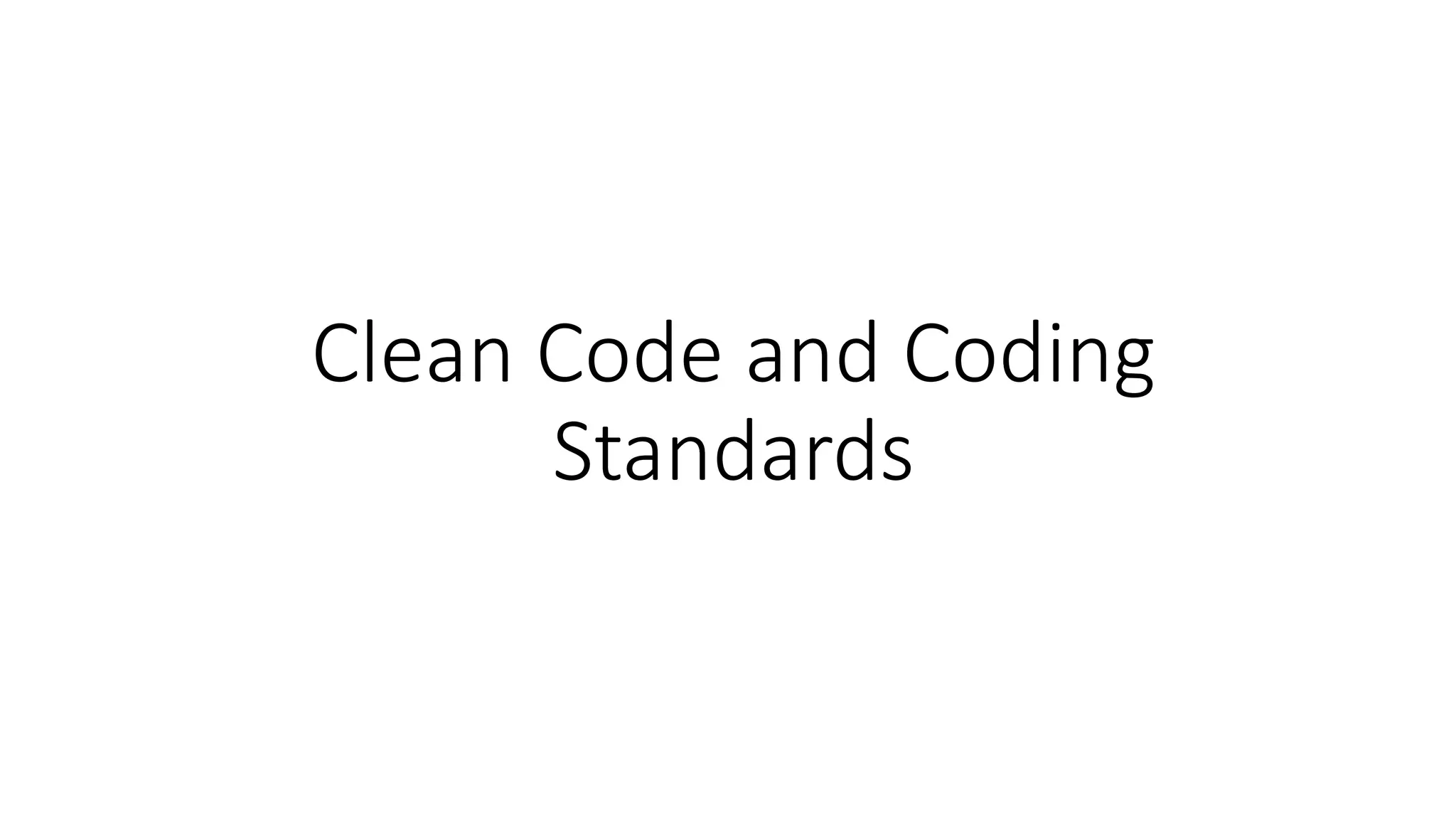The document discusses clean coding standards and best practices. It recommends following the Boy Scout Rule of leaving the code cleaner than you found it. It discusses using meaningful names for classes, methods, and variables without encodings. Functions should do one thing, use descriptive names, and avoid repeating code. Comments should explain intent, not make up for bad code. Error handling prefers exceptions over return codes. Formatting and style rules should be consistent within a team. Coding standards exist for many languages like Java, PHP, C#, Android and others.












